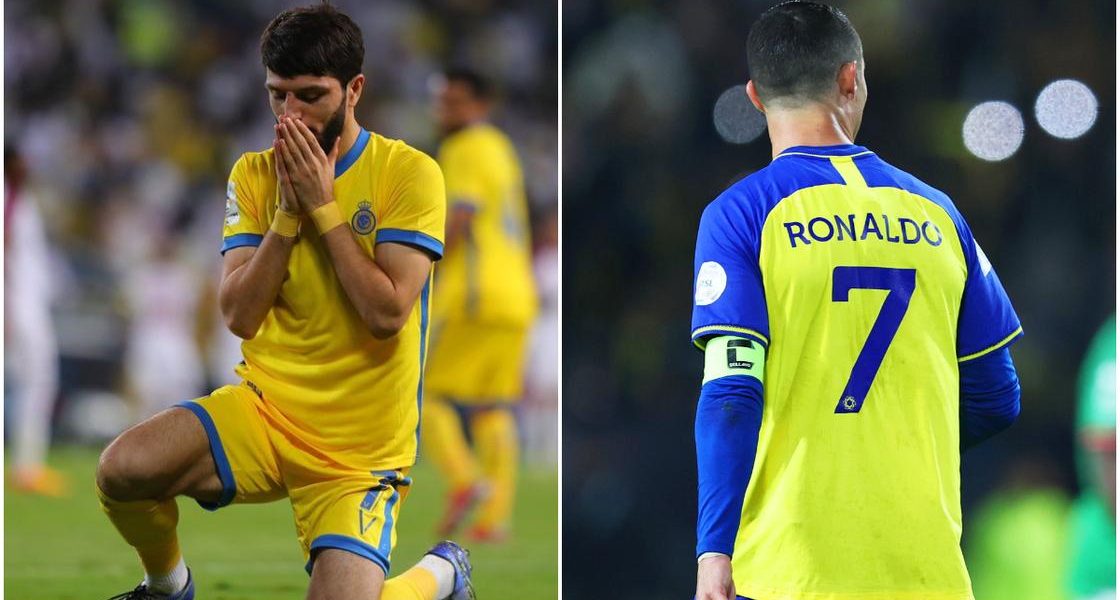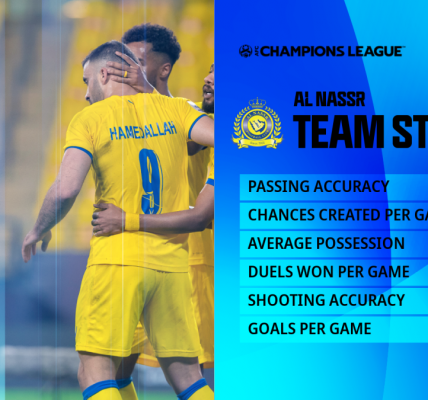Al Nassr Before Ronaldo A Legacy of Success and Ambition
Before the arrival of Cristiano Ronaldo, Al Nassr FC was already one of the most prestigious and successful football clubs in Saudi Arabia. Established in 1955, the club’s rich history was built upon a foundation of domestic dominance, regional competitiveness, and a passion for football. While the global spotlight on the club has certainly intensified with Ronaldo’s signing in 2023, Al Nassr has a long legacy of achievements that positioned them as a powerhouse in Saudi and Middle Eastern football long before the Portuguese superstar joined.
Foundation and Early Years
Al Nassr was founded by a group of football enthusiasts in Riyadh, Saudi Arabia, and it quickly became one of the most successful clubs in the country. From the beginning, the club was committed to fostering talent, developing competitive squads, and dominating local football. It became a major force in the Saudi Pro League (formerly known as the Saudi Arabian Premier League) in the 1960s and 1970s.
The club’s early successes in local tournaments cemented its place among the top clubs in Saudi Arabia. Al Nassr’s emphasis on local talent development, combined with a strong leadership structure, helped it grow its reputation both in Saudi Arabia and across the Middle East.
The Rise to Prominence
Through the 1980s and 1990s, Al Nassr FC enjoyed an era of significant success, both domestically and in international competitions. Some key moments that defined the club’s rise to prominence include:
- Domestic Dominance: The 1980s and 1990s saw Al Nassr consistently competing for the Saudi Pro League title. The team won multiple league championships and became synonymous with winning football in Saudi Arabia. During this time, Al Nassr developed a reputation for a well-organized and strong team that could compete with the best in the league.
- Regional Glory: The club’s dominance wasn’t limited to domestic football. Al Nassr also performed admirably in regional tournaments such as the Gulf Club Champions Cup and the AFC Champions League. In 1995, the team won the Asian Cup Winners’ Cup, an achievement that helped to elevate its profile across Asia. The win was a milestone in Al Nassr’s history, as it made the club a formidable force on the continent.
- Star Players and Key Signings: During these years, Al Nassr attracted some of the most talented players in Saudi Arabia and beyond. Players like Majed Abdullah, one of the greatest footballers in Saudi history, played for the club during its golden years. Abdullah became a legend at Al Nassr, leading the club to multiple domestic titles and becoming the club’s all-time top scorer. His presence on the field, combined with his leadership, helped Al Nassr maintain its competitive edge.
Continued Success in the 2000s
In the 2000s, Al Nassr continued to build on its legacy, maintaining a high standard of football in the Saudi Pro League and expanding its reach in international competitions. The 2000s were marked by continued domestic success, with the team claiming multiple Saudi Crown Prince Cup titles and securing their place in the competitive landscape of Saudi football.
The team’s 2009 AFC Champions League campaign, where Al Nassr reached the semifinals, demonstrated its consistency in Asia. Though the club did not win the prestigious tournament, it reinforced Al Nassr’s reputation as one of the best clubs in the continent.
Challenges and a New Era
Despite the club’s consistent success in the 2000s and early 2010s, Al Nassr FC faced challenges, both on and off the field, in the years leading up to Cristiano Ronaldo’s arrival. While the team remained competitive in the Saudi Pro League, other clubs in the region, most notably Al Hilal, began to close the gap, creating a more competitive landscape.
Additionally, Al Nassr faced fluctuating performances in continental competitions, which sparked concerns among fans and management. However, even as Al Nassr encountered these setbacks, its fanbase remained loyal, and the club continued to maintain one of the largest and most passionate followings in Saudi football.
Ronaldo’s Arrival: A New Chapter
The club’s fortunes dramatically changed with the signing of Cristiano Ronaldo in December 2022, when the Portuguese icon joined Al Nassr on a two-and-a-half-year contract. Ronaldo’s move to Saudi Arabia represented a new era for the club, both in terms of on-field talent and global recognition. His arrival not only attracted international attention but also significantly boosted the profile of the Saudi Pro League and football in the region as a whole.
However, it is important to note that Al Nassr’s pre-Ronaldo legacy set the stage for such a high-profile acquisition. The club’s storied history, its long tradition of success, and its established reputation as a football powerhouse in Saudi Arabia were key factors in attracting a player of Ronaldo’s caliber.
A Legacy of Success
Before Cristiano Ronaldo donned the famous yellow and blue jersey, Al Nassr FC was already a name that commanded respect in Middle Eastern football. The club’s long and successful history has seen it win numerous domestic titles, including Saudi Pro League titles, King’s Cup victories, and regional cups. The Al Nassr of today owes much of its modern success to the foundation built over the years by legendary players, coaches, and club officials who shaped its trajectory.
From its inception in 1955 to becoming one of the top clubs in Asia, Al Nassr developed a winning mentality that permeates every aspect of the club. Whether it was Majed Abdullah’s unforgettable goals, their multiple league titles, or regional tournament successes, the club’s legacy has been characterized by triumph, dedication, and resilience.
Conclusion
Before Cristiano Ronaldo’s arrival, Al Nassr FC had already established itself as a dominant force in Saudi and Asian football. With a rich history of domestic success, regional triumphs, and a reputation for attracting top-tier players, the club was one of the biggest names in the Middle East. Ronaldo’s move to the club marked a new chapter in its history, but the legacy of Al Nassr was already firmly rooted in the hearts of its fans and the football world at large.
The Al Nassr FC we know today is a product of decades of hard work, commitment to excellence, and a rich history of success. With Ronaldo’s presence, the club aims to further elevate its stature on the global stage, but the foundation laid by the club’s earlier generations will always be a defining aspect of its identity.




